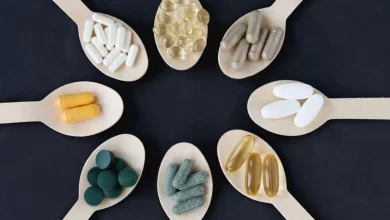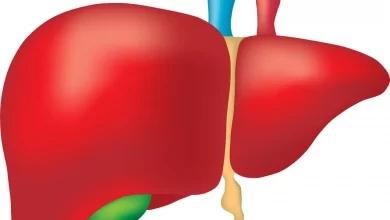Antioxidants are compounds found in many foods that can help to protect the body from the damaging effects of free radicals. Free radicals are molecules that can cause damage to cells and DNA and contribute to the development of various diseases, including cancer, heart disease, and Alzheimer’s disease. Antioxidants work by neutralizing free radicals, preventing them from causing damage to the body. Some examples of foods that are high in antioxidants include berries, nuts, green leafy vegetables, and dark chocolate. Additionally, some vitamins and minerals, such as vitamins C and E and selenium, are also antioxidants. Eating a diet high in antioxidants can benefit overall health and reduce the risk of chronic diseases. However, it’s important to remember that while antioxidants are essential, they are just one aspect of a healthy diet, and it’s important to eat a wide variety of nutrient-rich foods for optimal health.
- Antioxidants are compounds that can prevent or slow damage to cells caused by free radicals.
- Free radicals are unstable molecules that can damage cells and contribute to ageing and diseases such as cancer, Alzheimer’s, and heart disease.
- Antioxidants can be found in many foods, such as fruits, vegetables, nuts, and whole grains.
- Vitamins C and E, beta-carotene, and selenium are examples of antioxidants.
- Some antioxidants, such as vitamin C, are water-soluble, while others, such as vitamin E, are fat-soluble.
- Antioxidants can be produced naturally by the body but can also be obtained from dietary sources.
- Antioxidants can help protect against inflammation, which is associated with many chronic diseases.
- Antioxidants can also help protect against damage to DNA, which can contribute to cancer development.
- Some research suggests that antioxidants may also help to protect against cognitive decline and Alzheimer’s disease.
- The ORAC (Oxygen Radical Absorbance Capacity) scale is a measure of the antioxidant capacity of foods. Foods with a high ORAC score are considered to have a high antioxidant content.
- Some popular sources of antioxidants include blueberries, strawberries, spinach, nuts, dark chocolate, and green tea.
- Antioxidants can also be taken as dietary supplements, but talking to a healthcare provider before taking any supplements is essential.
- While antioxidants are essential for overall health, they should not be relied upon as a substitute for a balanced diet and a healthy lifestyle.
- Different antioxidants can work together synergistically, enhancing each other’s benefits.
- Cooking and processing can reduce the antioxidant content of foods, so it’s best to consume a variety of fresh, minimally processed foods to get the maximum benefits of antioxidants.
- Antioxidants play a crucial role in maintaining the health and function of cells, tissues, and organs in the body.
- Antioxidants can help to protect the skin from damage caused by UV radiation from the sun.
- Some antioxidants, such as flavonoids, are known to have anti-inflammatory properties, which may help to reduce the risk of chronic diseases such as arthritis.
- Antioxidants can also help lower LDL (bad) cholesterol levels in the blood, reducing the risk of heart disease.
- Some studies suggest that antioxidants may also have a protective effect against certain types of cancer, such as breast, lung, and colon cancer.
- Some antioxidants, such as lutein and zeaxanthin, are essential for maintaining eye health and may help to reduce the risk of age-related macular degeneration.
- The body’s ability to produce antioxidants declines with age, which may contribute to the development of age-related diseases.
- Certain lifestyle factors, such as smoking, alcohol consumption, and exposure to pollutants, can increase the production of free radicals in the body, making antioxidants even more important.
- It’s important to get a variety of antioxidants from different sources, as they all have different health benefits.
- Some sources of antioxidants, such as green tea, may also have other health benefits, such as promoting relaxation and reducing stress.
- Eating a diet rich in antioxidants may also help to improve athletic performance, as antioxidants can help to reduce muscle damage and inflammation caused by exercise.
- Some research suggests that certain antioxidants, such as resveratrol, may have anti-ageing effects and could potentially extend lifespan.
- Antioxidants are not a magic bullet; maintaining a healthy lifestyle overall to achieve optimal health is important.
- Some antioxidants, such as vitamin A, can be toxic in large doses, so it’s important not to exceed the recommended daily intake of these nutrients.
- Antioxidants are important for supporting the immune system, as they help to protect immune cells from damage and may also enhance their function.
- Some antioxidants, such as polyphenols, may also have prebiotic effects, promoting the growth of beneficial gut bacteria.
- Antioxidants can be found in a wide range of foods, including fruits, vegetables, whole grains, nuts, seeds, and spices.
- Carotenoids such as beta-carotene may help to support vision health, while anthocyanins found in berries may help to protect against cognitive decline.
- Some antioxidant compounds may be more effective when consumed together with other nutrients. For example, vitamin C can enhance the absorption of iron from plant-based foods.
- Some antioxidants, such as curcumin found in turmeric, may also have anti-inflammatory effects, which may be beneficial for conditions such as arthritis and inflammatory bowel disease.
- Antioxidants can also help to protect against oxidative stress caused by environmental toxins such as pollution and cigarette smoke.
- Some research suggests that antioxidants may also play a role in regulating blood sugar levels, potentially reducing the risk of type 2 diabetes.
- Different cooking methods can affect the antioxidant content of foods. For example, boiling or microwaving vegetables can cause some loss of antioxidants, while roasting or grilling can help to retain them.
- Antioxidants can also be found in beverages such as coffee, tea, and red wine. However, it’s important not to consume too much alcohol, as this can have adverse health effects.
- Some antioxidant compounds like quercetin and resveratrol are also being studied for their potential anti-cancer properties.
- While some antioxidants can be obtained through dietary sources alone, supplements may be recommended in some cases, such as for people with certain medical conditions or those with nutrient deficiencies.
- Honey has phytochemical, anti-inflammatory, antimicrobial, and antioxidant properties that could help treat diseases. Two of honey’s most important bioactive molecules are flavonoids and polyphenols, which work as antioxidants.





